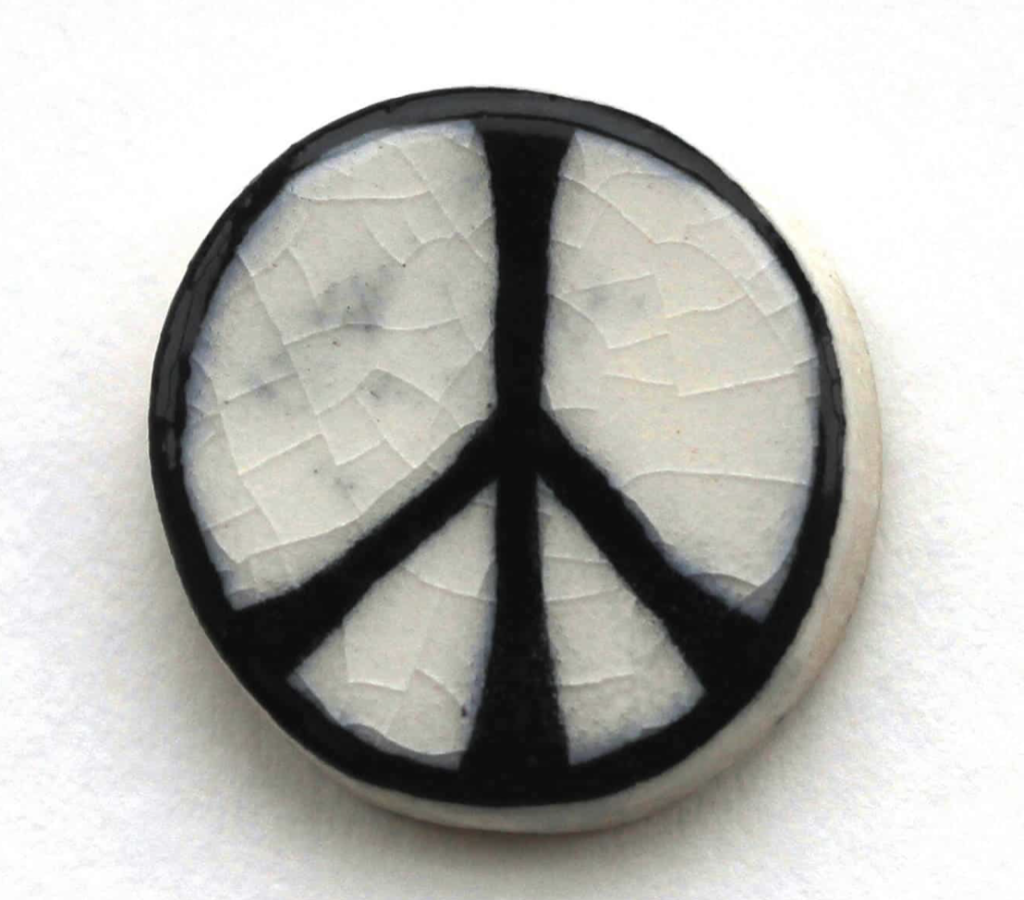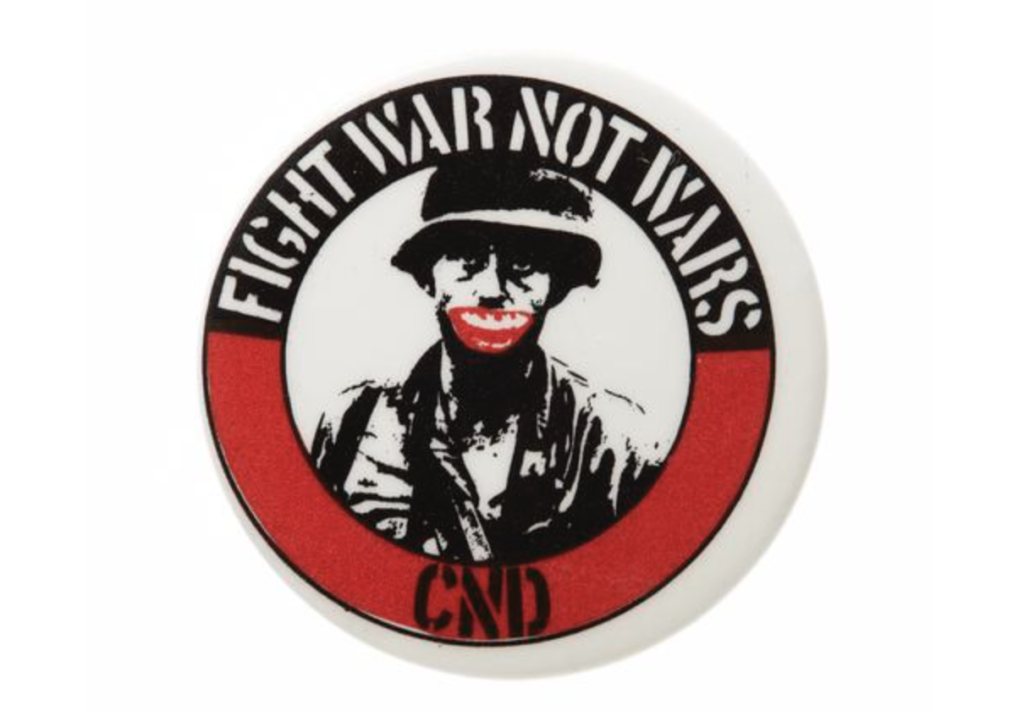Monthly Archives: February 2020
CND Symbol and Crass
According to this Campaign for Nuclear Disarmament backgrounder, CND’s symbol was the one below, which became commonly known as the peace symbol.

These badges
were made by Eric Austen of Kensington CND using white clay with the symbol painted black. Again there was a conscious symbolism. They were distributed with a note explaining that in the event of a nuclear war, these fired pottery badges would be among the few human artefacts to survive the nuclear inferno.
The Museums Victoria, though, has another symbol which appears to combine the CND initials with the title of a Crass song.

The initials CND are printed across this badge, signalling that it was initially made for the British organisation Campaign for Nuclear Disarmament. However, the donor of this badge, Nic Maclellan, thinks that it might have been re-issued in Australia using the British original design. The badge relates to a 1978 song by Crass called Fight War not Wars, in which this line is repeated over and over again.
I shall not try to understand the relationship between these two symbols, but I found this interesting.
The Youth on Blogging
2-3 years ago, an intern told me that blogs were coming back.
Probably should have made him photocopy more.
Paul Pillar on Iraq Invasion Origins
From the aforementioned 2006 interview:
PBS: [Then-Deputy Secretary of Defense Paul] Wolfowitz and most of those New American Century [neoconservative] people by ’97, ’98, are out there agitating for finishing [what] President George H.W. Bush couldn’t [in Iraq]. … What were you making of those allegations then in the ’90s?
PILLAR: The basic allegation that Saddam’s regime was responsible for all manner of things, including the World Trade Center in 1993 and just about any other terrorism under the sun, … was simply not credible at all. It’s not as if the accusations or the line of argument had been dismissed out of hand; they hadn’t been. … They were looked at carefully, and there simply wasn’t anything there.
Now, Iraq, of course, was doing other things with regard to sponsorship of terrorism, … and they rightly were on the state-sponsored terrorism list. But what we saw happen after 9/11, trying to put together this thesis of some sort of alliance with Al Qaeda, was a manufactured issue.
PBS: Could you feel that there was among this group, the neocons, that there was a real force out there pushing to overthrow Saddam?
PILLAR: It was there, but it wasn’t until 9/11 afforded the opportunity by making the American public suddenly much more militant that the prospect of actually going to war became real. Before 9/11, they didn’t have enough to hang on. The desire was there, but the prospect was not. …
Doomsday
Paul Pillar on Pressure and Intel
This interview with Paul Pillar, published in 2006, contains a slew of good material regarding the intelligence community, especially the 2002 NIE and Iraq’s WMD.
I’ll write more about this, but I thought I’d highlight his commentary on the phenomenon of political pressure and intelligence analysis:
This is something I think has been missed by otherwise very good work by the likes of the commission led by Judge [Laurence H.] Silberman and Sen. [Charles S.] Robb, which produced a very comprehensive and useful report with excellent recommendations. But one thing that’s been missed by that inquiry, and the inquiry of the Senate Intelligence Committee, really has to do with the issue of politicization. They reached the judgment that no, there wasn’t any evidence of politicization, but basically what they were doing was asking analysts whether their arms had been twisted.
Politicization, real politicization, rarely works that way; that is to say a blatant, crude arm twisting. It’s always far more subtle. It would take the form either of these almost subconscious or subliminal adjustments that dozens of analysts might make in the course of phrasing their judgments, making it a little less nuanced, a little less caveated, which I think is the main basis for criticizing the judgments on weapons of mass destruction in Iraq.
It can take the form of … intelligence assessments that conform with what is known to be the policy having an easier time making it through … than assessments that don’t supply the policy. … This wasn’t an inquiry into how can Iraq threaten the United States; it wasn’t an inquiry into what are Al Qaeda sources of support. It instead was basically research in support of a specific line of argument. That, I think, qualifies for the label “politicization,” even if analysts are doing their best job to maintain their analytic integrity when they make their individual judgments. …
